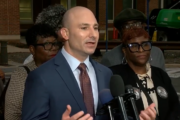While many workers look forward to retirement, financial struggles and other surprises can present challenges during this phase.
To prepare, it can be helpful to see what other retirees have to share. Many learned to adjust their plans after stepping away from work to get over initial hurdles.
Some of the biggest retirement regrets include:
— A vague financial plan.
— No retirement goals.
— Counting on long-term employment.
— Losing touch with adult children.
— Experiencing drawbacks of early retirement.
— Not focusing on what really matters.
— Failing to embrace a slower pace.
— Not starting a second-act career sooner.
— A lack of purpose.
— Not factoring in inflation.
[Read: Retirement Planning Lessons From the Great Recession]
A Vague Financial Plan
Drew Parker, a retired financial manager for a Fortune 500 company in the Seattle area, wishes he had made a more detailed financial plan before retirement. “Knowing what I know now that I didn’t know before has afforded me the opportunity to make adjustments to improve my margin of error and to make more informed decisions,” says Parker, who created The Complete Retirement Planner. “This knowledge would have been exponentially more valuable at a much younger age, so I encourage others to take the time to do their own due diligence and to create a comprehensive financial plan based only on their own unique circumstances and needs.”
No Retirement Goals
Retirement provides an opportunity to do what you want to do, but you also need to figure out what you want to achieve in retirement. “I had to look at what I really wanted to achieve and what was my passion now that I had time and income to do pretty much what I wanted,” says Stephanie Cunningham, a retired policy officer for a state-level higher education board who now serves as a yoga teacher and life coach in New South Wales, Australia.
Counting on Long-term Employment
Timothy Wiedman, a retired professor in the Grand Rapids, Michigan, metro area, became an academic after a successful management career. Shortly after turning 60, he was granted tenure and promoted to associate professor. But his dream job didn’t last due to health problems. “Worsening sciatica in my left leg coupled with diabetic nephropathy and nerve damage in both feet made it clear to me that teaching until I turned 70, in order to max out my Social Security benefits, was not the viable option that I had once envisioned,” Wiedman says. “Thus, my long-time retirement plans that included ski trips into Colorado’s nearby mountains went by the wayside.”
[See: 15 In-Demand Jobs for Seniors.]
Losing Touch With Adult Children
Edd and Cynthia Staton, creators of the Retirement Reimagined course, were financially devastated by the economic crisis of 2008. “Our solution to this catastrophe was to retire early and move abroad to a lower cost of living,” Staton says.
The couple decided to relocate to Cuenca, Ecuador, where their budget would stretch further. “Our two adult children were just getting started with their lives and we didn’t want to burden them psychologically or financially with our problems,” Staton says. “We later found out that both were hurt by our honest attempt to shield them from our personal challenges and felt abandoned. Our advice is it’s OK to share the good and bad with your immediate family. If you’re concerned about your financial future or even what you’re going to do with yourself 24/7/365, let them know and seek their input.”
Experiencing Drawbacks of Early Retirement
An early retirement can seem like a dream come true until you realize that most of the people you would like to spend more time with are still busy working. AJ Borowsky, founder of Embark Financial Life Coaching in Wildwood, New Jersey, retired from a 25-year career in television news at age 48.
“While you suddenly have large amounts of free time, your friends are still working, so the very people you would want to spend time with are unavailable,” Borowsky says. “I think a big reason for boredom in early retirement is the lack of similarly aged friends.”
Not Focusing on What Really Matters
Shortly after remarrying to form a blended family of five children in 2006, Greg Huntington faced a corporate downsizing and took a voluntary retirement separation package at the end of 2007. He spent the next years adjusting to a new life and role and founded True Joy Acoustics in Waynesville, Ohio.
“Managing money, health, children’s college pursuits and creating a second-act career identity are important, but it has become clear to me that successfully staying above water in these areas is insufficient,” Huntington says. “Never sacrifice your soul and soul mate. A deep sense of spirituality and love in your retirement years will empower you to tend to everything that truly matters in life.”
Failing to Embrace a Slower Pace
After a lifetime of being constantly busy, it can be difficult to slow down in retirement. “I have always pushed myself to be the best that I can be and to achieve as much as possible. I am beginning to realize that it is OK to enjoy the fruits of my labor, to be proud of my achievements and to take life a bit easier,” says Beverly Solomon, a designer phasing into retirement near Austin, Texas. “I want to stay in good shape mentally and physically, and I want to stay creative, but it is really fun to peacefully walk my ranch, to go rock hunting, to travel, and to sit by our springs and slowly sip a glass of wine while watching the sunset.”
Not Starting a Second-Act Career Sooner
After stepping away from the office, Lisa Powell started a pet-sitting service, Critter Sitter of VA, in Fredericksburg, Virginia. “I’m loving retirement from accounting and my newfound joy. In hindsight, I’m not sure why the idea didn’t come to me sooner; it seems so clear now,” Powell says. “At times I wish this all happened years ago when the spring in my step was a little quicker.”
[See: 19 Part-Time Retirement Jobs That Pay Well.]
A Lack of Purpose
If you don’t have a reason to get up in the morning, retirement can get dull. “I thought leaving my hectic career as a physician would solve all my problems,” says Jordan Grumet of Evanston, Illinois, who retired from his job as an internal medicine physician in 2018.
“After a short period, I realized that leaving work did not create a significant sense of purpose, identity or connections. I had to develop those on my own.” Grumet went on to start a podcast called Earn & Invest and is the author of “Taking Stock: A Hospice Doctor’s Advice on Financial Independence, Building Wealth, and Living a Regret-Free Life.”
Not Factoring in Inflation
Rising prices can hit budgets hard for those living on fixed incomes. “Inflation and higher costs affect everyone, and retirees are no exception,” says Carole Gee, a retiree and author of “Telling Stories, Sharing Confidences” in Atlanta.
She and her husband planned out expenses to make sure they had enough to cover everything. Taking small measures month to month can help retirement funds last.
More from U.S. News
Great Senior Discounts for 2023
Job Search Websites and Apps for Retirees
10 Retirees Share Their Biggest Regrets originally appeared on usnews.com
Update 07/20/23: This story was previously published at an earlier date and has been updated with new information.







